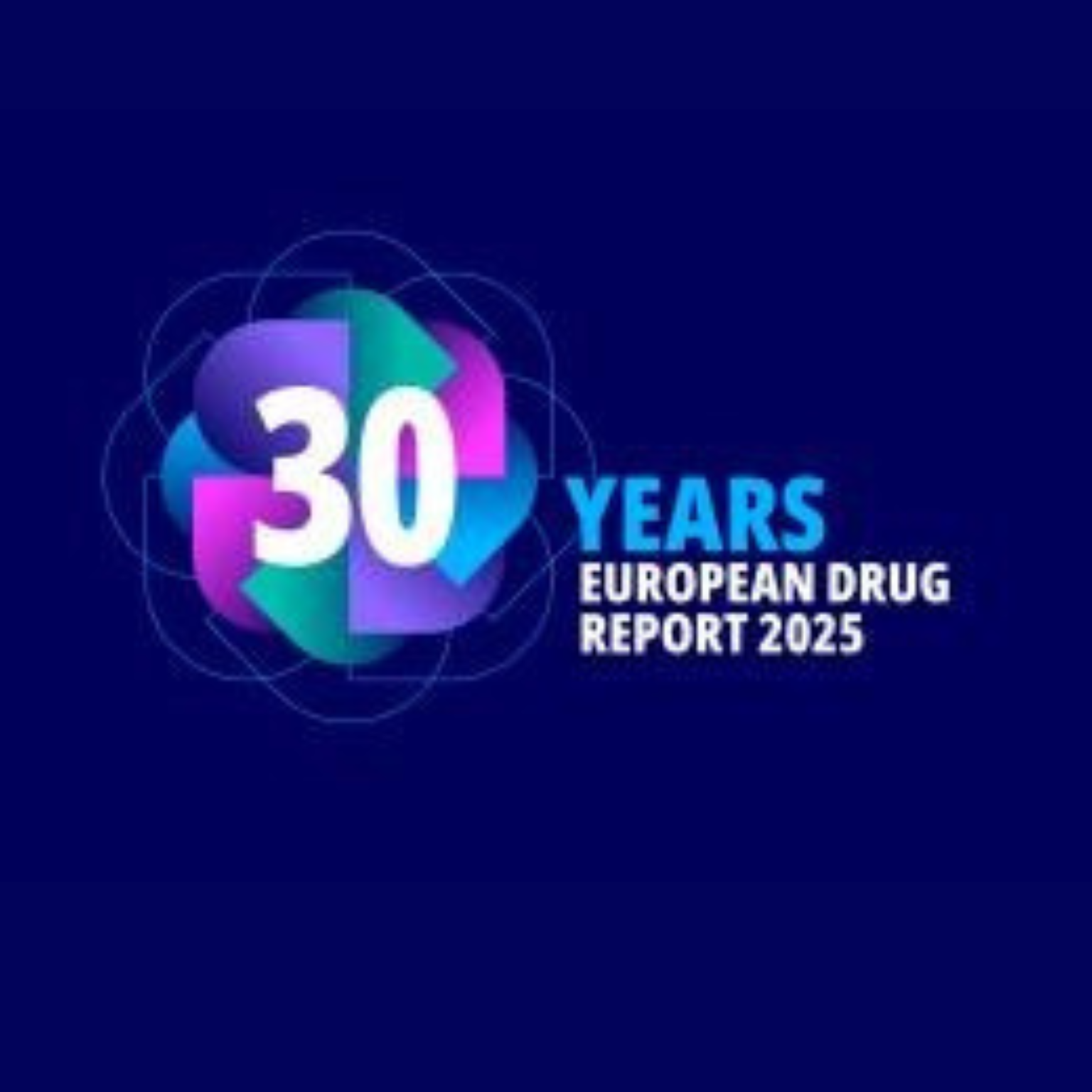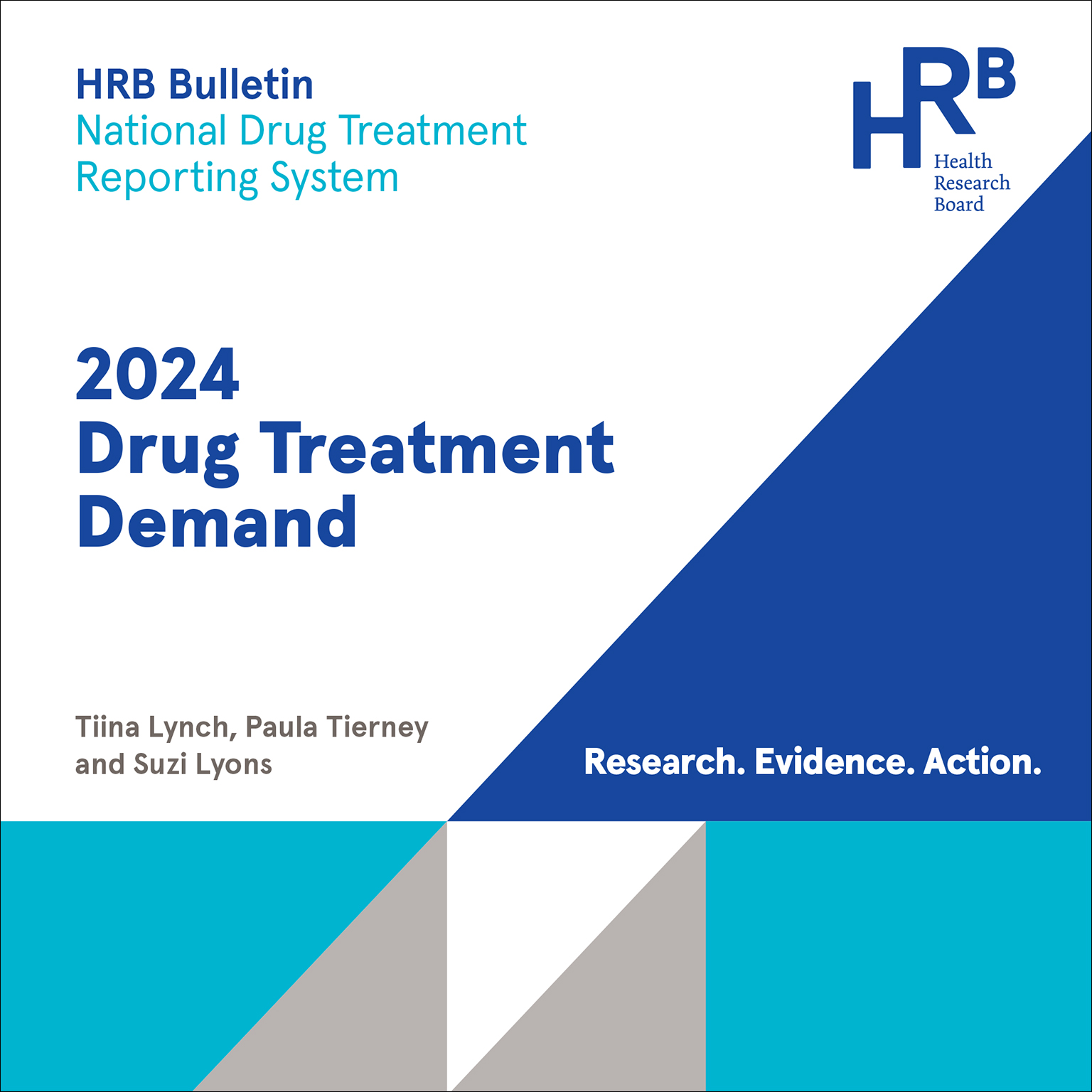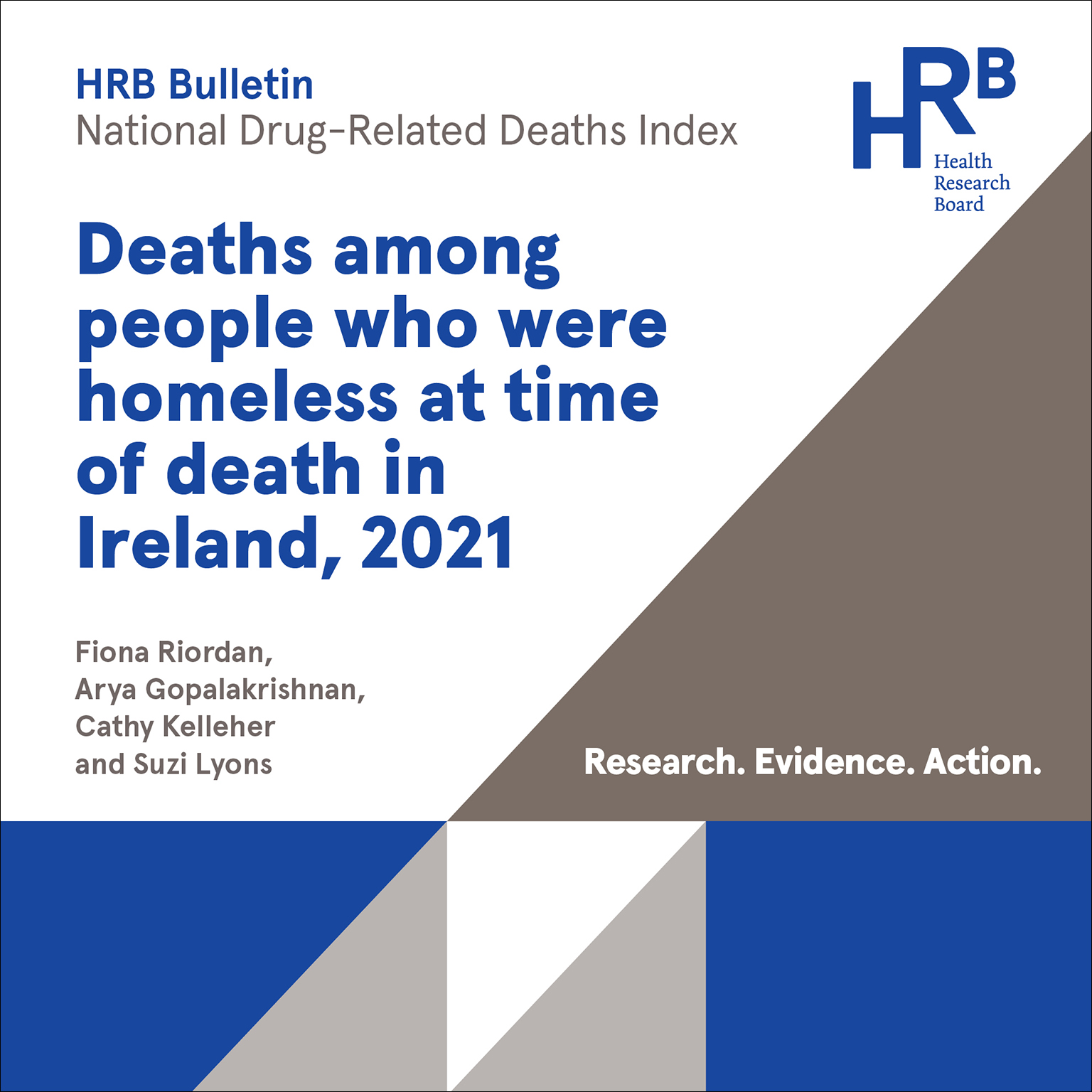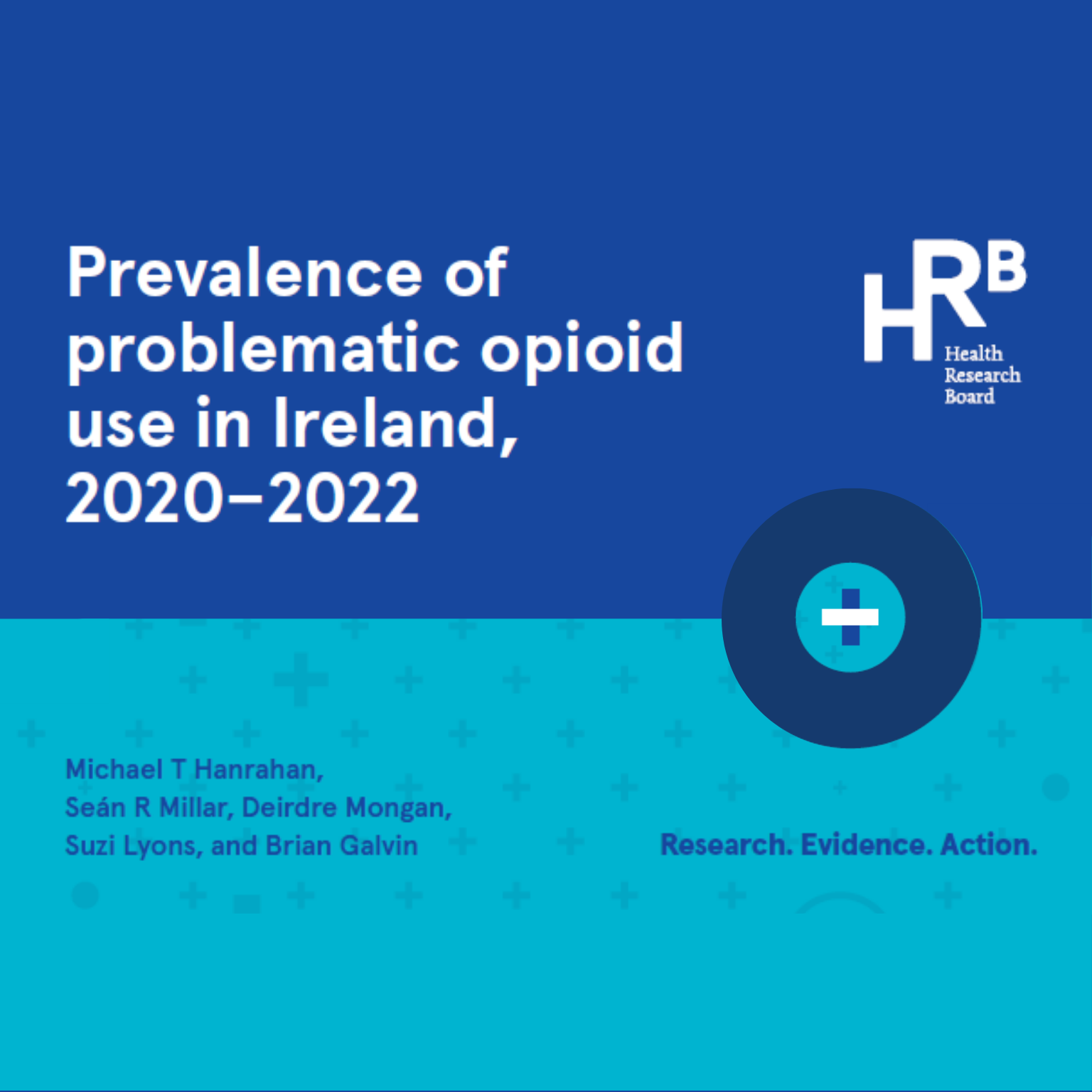New HRB report examines substance use among young people
Findings from the latest HRB report reveal that adolescents are starting to drink alcohol at a later age – but one-in-three young drinkers has an alcohol use disorder. The data highlights an increase in substance-related hospitalisations among young people and that treatment for cocaine use among young people increased by 171% between 2011 and 2019. It also shows a clear link between mental ill health and substance use, evident across data on anxiety, self-harm and suicide.
5 min read - 8 Jun 2022
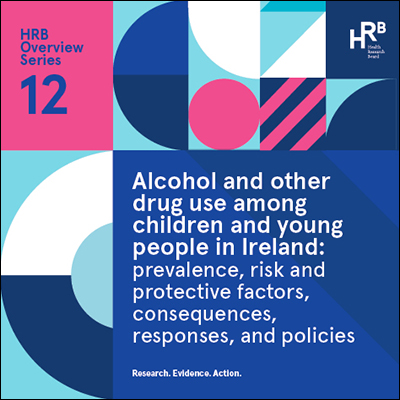
Drawing on data from surveys and reports and from health and law enforcement services, the Health Research Board (HRB) report Alcohol and other drug use among children and young people in Ireland: prevalence, risk and protective factors, consequences, responses, and policies presents recent information on 15-24-year-olds’ use of alcohol and other drugs, the associated harms and the measures that are being taken to protect children from the effects of early substance use.
Dr Mairéad O’Driscoll, HRB Chief Executive, comments:
“Young adults are at a very formative time in life; physically, socially and emotionally. This HRB report provides a clear picture of their behaviour in relation to substance use. By monitoring trends over time, the HRB can help inform effective responses that parents, practitioners, educators and policy makers can take to support the health and wellbeing of young people.”
Anne Doyle, HRB Research Officer and lead author of the report, comments:
“The finding that young adolescents are starting to drink at a later age is welcome; however, this HRB report also shows the many challenges and risk factors that young people face in relation to substance use, the need for treatment and the impact of substance use on mental health.
The report provides data that enables us to better understand the difficulties faced by young people when substance use is a very real part of society, so that we can identify the protective factors that can help reduce risk. This will help strengthen the prevention of drug and alcohol use among children and young people, which is a priority of the National Drug Strategy.”
Key findings
Young people are beginning to drink alcohol at a later age – but problem drinking remains a major issue among 15–24-year-olds
- Young people are starting to drink at a later age, with the average age of first use increasing from 15.6 years in 2002 to 16.6 years in 2019. Moreover, more young people now abstain from alcohol (increased from 11% in 2002 to 26% in 2019).
- However, one-in-three drinkers aged 15-24 years participating in a population survey has an alcohol use disorder (AUD) (38%) and, despite a decrease in the prevalence of binge drinking, adolescents in Ireland rank 7th out of 35 European countries for reports of being drunk.
- HSE low-risk guidelines suggest a weekly limit for alcohol. Almost one-in-three males and one-in-four females aged 15-24 years reported exceeding this limit on a single drinking occasion at least once in the last year.
Illegal drugs: ecstasy and cocaine use on the rise
- Over one-quarter of young people reported using illegal drugs in their lifetime, with one in five using an illegal drug in the last year.
- Males are more likely than females to use illegal drugs.
- Cannabis remains the most commonly used drug, but the use of stimulants, including ecstasy and cocaine, has increased. Ecstasy and cocaine use among young people in Ireland was the second highest in Europe.
- Polydrug use is common with more than two in five third-level students who were current drug users reporting using two or more substances on the same occasion.
Risk and protective factors
- Parental provision of alcohol, parental substance use, and early initiation of alcohol use is linked with risky drinking.
- Young people exposed to alcohol marketing are more likely to initiate drinking and engage in binge drinking and drunkenness.
- Having a positive parental relationship was associated with decreased substance use.
Hospitalisation, treatment and deaths: increase in substance-related hospitalisations and treatment among young people
- Hospitalisations due to drug use increased by 26% and alcohol-related hospitalisations by 12% between 2015-2018. Use of alcohol, followed by cannabis and cocaine, were the most common factors in substance-related hospitalisations.
- The increase in cocaine use has resulted in a 171% increase in the number of cases of young people receiving treatment for their cocaine use between 2011-2019, and cocaine-related hospitalisations increased by 83% between 2015-2019.
- Cannabis was the substance for which treatment was most commonly received. In 2020, 1,229 cases of young people received treatment for their cannabis use.
- In 2017, 17 young people died as a result of alcohol and/or drug poisoning, and 40 deaths due to traumatic events were among young people who had a history of drug use and/or alcohol dependency and/or had alcohol implicated in their cause of death.
- Nearly half of young driver fatalities with a toxicology result available had a positive toxicology for alcohol.
Impact of substance use on mental health
- There is a link between mental health and substance use, and young adults with alcohol dependence are more likely to have severe anxiety. Cannabis users are six times more likely to report mental ill health than those who do not use cannabis.
- In over one in four self-harm hospital presentations among young people, the individual had been drinking alcohol before or during the self-harm act.
- Almost three in four young people aged 15-24 years who died by suicide had a history of alcohol and/or drug misuse.
Alcohol and crime: strong links between alcohol/drug misuse and criminal behaviour
- The majority of young people referred to Probation Services reported alcohol and/or drug misuse problems (86%).
- 30% of drug-driving arrests were among those aged 18-24 years, most commonly among young males.
ENDS
For further information, infographics or to organise interviews with experts, please contact:
Anna Dunne, Communications Officer, Health Research Board
m +353 85 859 0339, e adunne@hrb.ie
The full report is available to download from the HRB website: click here to download.
5 min read - 8 Jun 2022
